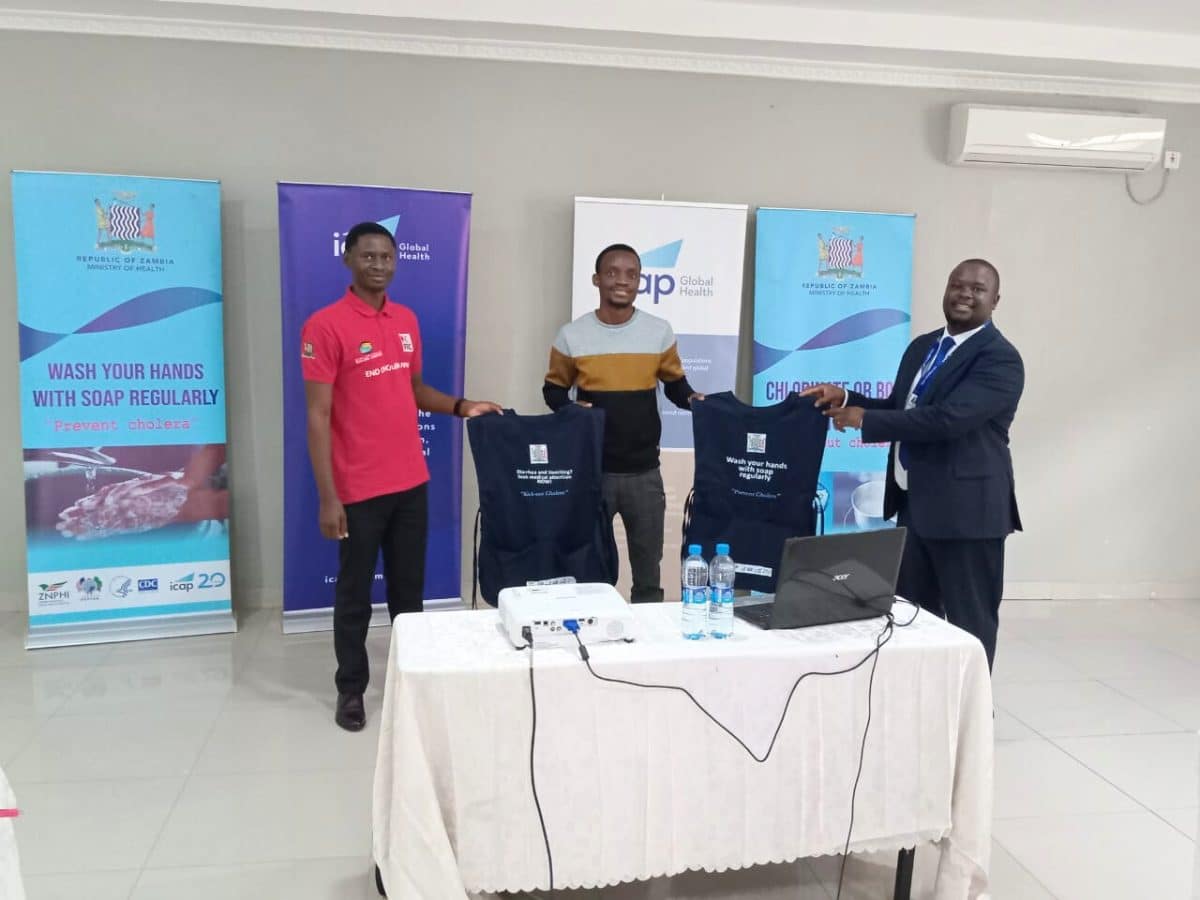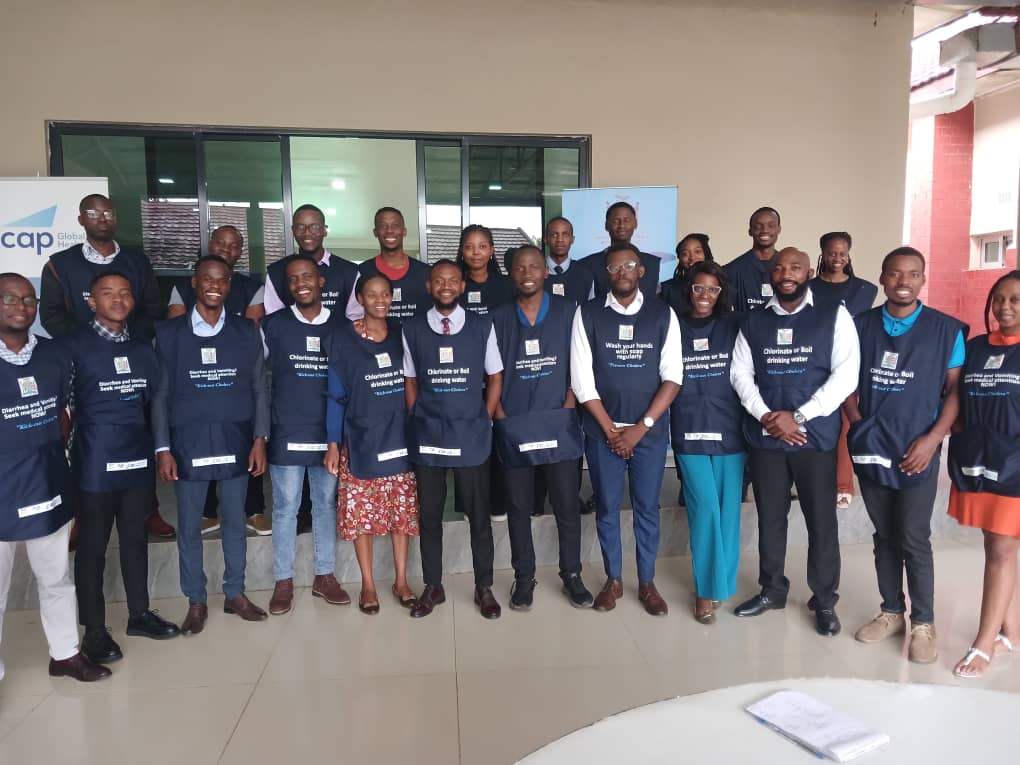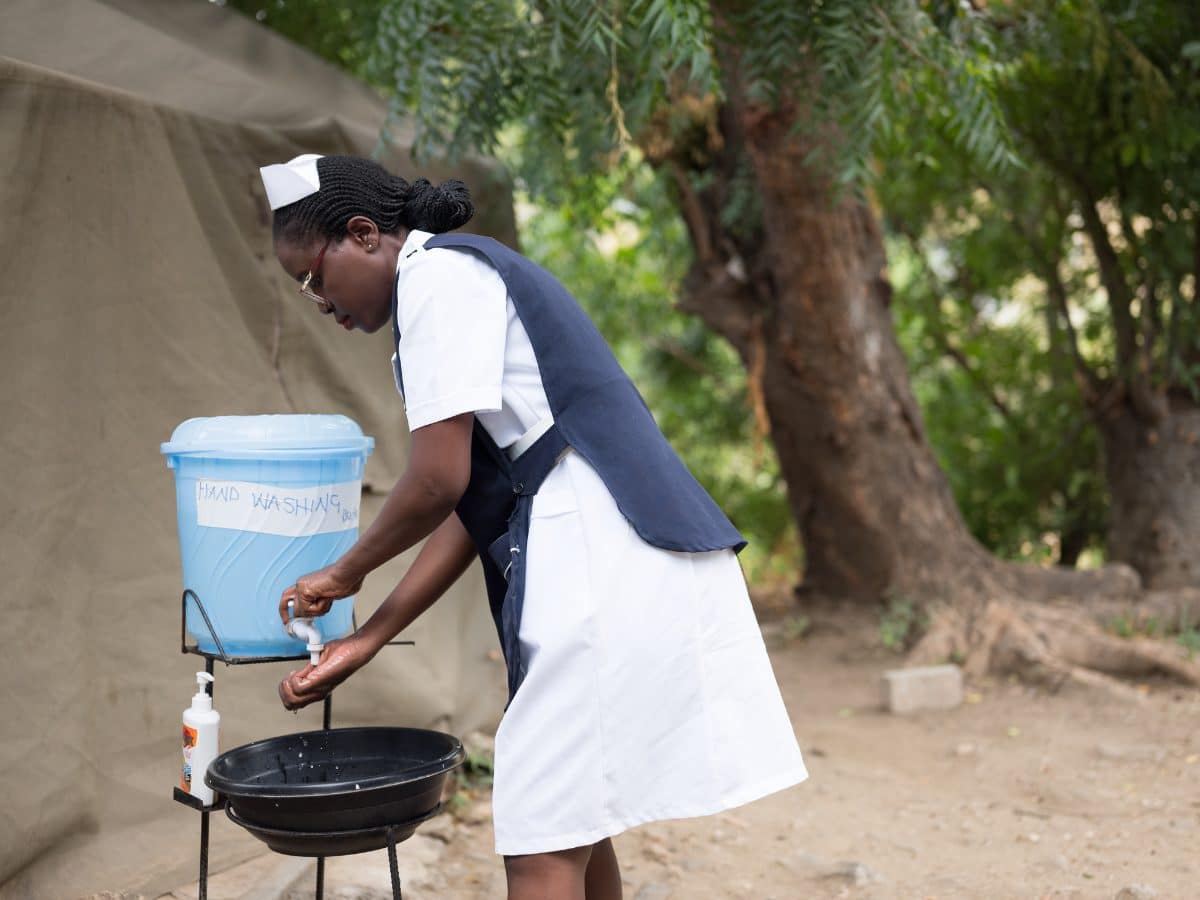Since October 2023, Zambia has been shocked by a major cholera outbreak that has now infected more than 18,000 and killed more than 600 people, the deadliest outbreak on record for the southern African country.
Tapped by the Ministry of Health to help address the situation, ICAP at Columbia University quickly adapted its programs in Zambia to train health staff across the country on the knowledge, skills, and tools they needed to address the rapidly spreading disease – and to ensure another outbreak is prevented in the future.
ICAP began supporting COVID-19 prevention and care efforts throughout Zambia in October 2022 with support from The Global Fund through the U.S. Centers for Disease Control and Prevention (CDC). As the disease became more endemic, ICAP shifted its focus on strengthening pandemic preparedness more generally, which is why the team was able to so quickly adapt when the cholera outbreak began in late 2023. ICAP mobilized trainings for health workers from cholera treatment centers on cholera clinical management as well as supply chain management. ICAP also developed and disseminated to health facilities cholera data capturing forms, job aids – for setting up patient flow, case management, and discharge criteria – and procured supplies for health workers, such as aprons that read promotional messages like “wash your hands with soap regularly.”

ICAP in Zambia director Tafadzwa Dzinamarira (right) presents aprons to Ministry of Health staff (center and left).
Cholera, a bacterial disease, is typically spread via contaminated food or water. These most recent outbreaks, which have hit other southern African nations, have been linked to frequent storms that have that left behind stagnant, contaminated water.
ICAP has been providing the Ministry of Health with targeted support to ensure Zambia can prevent outbreaks such as these, for example, through monitoring provincial cholera supplies stock status and coordinating procurement of supplies to minimize resource waste and prevent duplication. ICAP also monitors the daily cholera national incident management system with the Ministry of Health, together discussing case management, risk communication, community education, supply chain, daily reports from provinces, and ongoing efforts to combat the outbreak.
“Through their dedication and expertise, the ICAP team has played a pivotal role in ensuring the timely and efficient delivery of essential resources to affected areas,” said Dr. Nyuma Mbewe, Zambia national coordinator for cholera response at the Ministry of Health. “Their meticulous coordination of logistics has facilitated the procurement and distribution of critical medical supplies, including medications, hygiene kits, tents, and diagnostic tools, to frontline health care facilities and cholera treatment centers. Moreover, ICAP’s strategic approach to supply chain management has optimized resource utilization, minimized bottlenecks, and enhanced the overall resilience of the response efforts.”
“The ICAP-supported training was timely at a point when the system was struggling and mortality was high,” said Dr. Paul M. Zulu, infectious disease specialist at the Zambia National Public Health Institute. “In many ways, it helped both the patient and the health care worker.”

Health staff in Zambia following a cholera management training
Since the start of the outbreak, ICAP has trained a total of 135 health care workers in cholera case management. Trainings have taken place in areas where major outbreaks have occurred, including the Kamwala Prison Treatment Center and Kanyama First Level Hospital, both in Lusaka district and outbreak epicenters.
“We are so grateful to ICAP because it empowered us to head in our various cholera treatment centers with vast knowledge and ability to manage cases with ease,” said Dr. Kundananji Sikaona, a doctor trained in cholera case management.
Tafadzwa Dzinamarira, MSc, MPH, PhD, country director of ICAP in Zambia, said that addressing the cholera outbreak demands a dual approach – tackling root causes through provision of clean water and sanitation services and timely and effective case management. These efforts include reviewing and disseminating national cholera clinical management guidelines, continuous capacity building of health care workers, and infection control.
“ICAP recognizes the broader importance of fortifying capacity against other fecal-oral diseases, in addition to cholera,” said Dzinamarira. “Thus, we are committed to maintaining an updated roster of health care workers trained in cholera case management, ensuring preparedness for potential future outbreaks. In terms of supply chain management, ICAP will provide technical support to maintain adequate stocks at all levels, from central to provincial and district levels, particularly in cholera hotspots.”
About ICAP
A major global health organization that has been improving public health in countries around the world for two decades, ICAP works to transform the health of populations through innovation, science, and global collaboration. Based at Columbia Mailman School of Public Health, ICAP has projects in more than 40 countries, working side-by-side with ministries of health and local governmental, non-governmental, academic, and community partners to confront some of the world’s greatest health challenges. Through evidence-informed programs, meaningful research, tailored technical assistance, effective training and education programs, and rigorous surveillance to measure and evaluate the impact of public health interventions, ICAP aims to realize a global vision of healthy people, empowered communities, and thriving societies. Online at icap.columbia.edu








